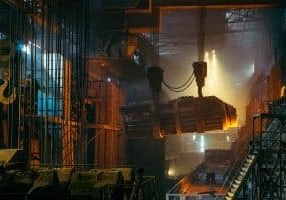While the digital transformation seems to be solely about technologies, in reality it is about people and how relationships develop because of it. The future of industry is digital, but also human. Discover with William Mejia, General Manager at METRON Colombia, how to embark on a positive path towards Industry 4.0.
The digital transition is coming and it is necessary

The 4th industrial revolution is a new era that consists of the fusion of the physical and digital planes. The bet for greater automation, connectivity, and globalization of the data within factories favor the presentation of key information in an understandable format and in real-time, for all users.
In other words, the fourth industrial revolution is nothing more than an evolution of the company itself and not a radical change. It is to progress by uniting human expertise and good productive habits with new technologies in order to decarbonize territories and create a competitive advantage based on efficiency and innovation. It is the possibility to know my productive particularities and to measure myself against my own results and not against a general standard that does not consider the range of variables and situations that are particular to my plant, territory, and organization.
The digital transformation in the industry is no longer an option to achieve a competitive advantage, it is an obligation. A company's level of competitiveness is directly related to its ability to manage processes and increase its productivity. According to the McKinsey consulting firm, companies that previously lived on average more than 60 years now live less than 20. As competition continues to grow, it becomes more difficult for companies to survive in the market. Companies wishing to survive in their sector must adopt digitalization as the core of their processes.
Digitalization is not something that arrives overnight, nor does it only affect one area of the company. Its complexity and challenges, as well as its benefits, affect all of us who are part of an organization. Therefore, this is also accompanied by a comprehensive cultural change internally, and this is not so much an obstacle as a necessary part of facilitating the transition.
It is not just a matter of technology
"Culture is the first reason why the digital transformation fails" - Charlene Li, Open Leadership: How Social Technology Can Transform the Way You Lead
Digitalization and energy transition are not only a matter of technology, since they are clearly advancing faster than our capacity to assimilate and adapt to it. We are forced to leave our comfort zone, to challenge our minds and habits to be willing to build new schemes. If an organization wants to stay current and competitive, it must move as fast as its customers and market trends.
To embark on a positive path, a recommendable alternative is to start by changing specific elements of the organizational culture (such as modifying certain routine processes), making it easier for employees to work in a different way, and encouraging the use of collaborative tools. Many of the skills of the past will not necessarily work in the years to come; this forces us to focus on the retraining and training of all members of the organization.
According to the WEF (World Economic Forum), 85 million jobs will be lost by 2025, but at the same time, 97 million vacancies will be created. Logically, the replacement of jobs will not be done in parallel, which is why it becomes fundamental to align the management of human talent with the strategy of digital transformation of companies from an integral perspective, focusing on stimulating new learning in existing employees, and how to attract and develop new talent.
The study 'The Future of Jobs', reveals that within the next five years, 35 percent of the job skills that are important today will have changed. By 2021, the three most relevant qualities in the staff will be: the way to solve complex problems, critical thinking, and creativity. These last ones translated to the jobs that according to the FEM are the 2 jobs that head the labor list of the future: data analysts and specialists in artificial intelligence and machine learning.
So, to face the inevitable digital transition, also accelerated due to Covid-19, both companies and individuals themselves will have to make an extra effort in terms of job training. The companies surveyed by FEM stated that 40% of their employees will have to receive extensive training programs.
To support this transition, the industry can count on the blossoming of new digital solutions able to understand and assimilate the new organizational pillars: culture, digital maturity, energy performance, and technological capacity, in order to create a more productive, energy efficient, and sustainable factory.
Are you looking for a digital solution? Tell us more:










